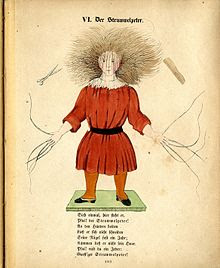This is a review of The Dressmaker (2015)
More views of - or before - Cambridge Film Festival 2015 (3 to 13 September)
(Click here to go directly to the Festival web-site)
30 November
This is a review of The Dressmaker (2015)
It is almost as though The Dressmaker has been pinned to fit around this one fact : Sunset Blvd. (1950) premiered in Australia, on 25 August 1950.
For want of a better word, the film is set in Dungatar, in 1951, but nothing in the flash of music, the gestures, the stance, remotely desires more than to draw our attention to the fact that there is unfinished business in this implausible, symbolic place – symbolic, because its very set-up is pat in the way that that of films such as High Noon (1952) always was, so that there can be nothing behind its implausibility, if not symbolism. (Here, the paraphernalia of the wild west, and all the stock sights and spectacles of the age’s saloon-bars, have been rolled into one figure.)
Symbolism, but not of any subtle or interesting kind, because it wants to revisit an earlier time of colourless grey, bit by irritatingly nagging bit. As if picking the skin of forgetfulness off an obliging old tangerine, and miraculously penetrating to – although with no means to do so beyond being back there – what had been misremembered, misunderstood, misrepresented. At best, Kate Winslet, in the person of Myrtle Dunnage (‘Tilly’), says to her mother (‘Mad’ Molly, played by Judy Davis) : I need you to remember me, mum, so I can remember.
That, too, is just a gesture in the direction of a symbolic level for the rehabilitation and restitution of Tilly’s mother (and, a few times, Molly duly disbelieves why her daughter is there). By contrast, in the best of Ibsen, this notion of what really happened can be revelatory, electrifying, and rarely for good, and many a time Hitchcock made true film capital through showing us something on screen that, although it was not the mind’s obfuscations in dream, desire or trauma, mimicked them (e.g. Spellbound (1945), Vertigo (1958), and Marnie (1964) :
Here it is just entertainment, with an audience of would-be psychic explorers, but in titters at Hugo Weaving’s again wearing women’s clothes : he did so devastatingly as Nurse Noakes in Cloud Atlas (2012), and without either exploiting or mocking, as this role does, those who share this interest. The likely audience for The Dressmaker will be unlikely to gravitate towards Dogville (2003), or to do so to their taste, whereas those who missed it and have only witnessed the work of Lars von Trier in more recent works of excess such as Melancholia (2011) and Nymphomaniac Vol. I (2013) and Vol. II (2013), can seek a worthier film there.
This is a film that never tries to do what Dogville does, but really feels like [it wants to be] Wes Anderson, but without Wes, and which is definitely written in a way that wishes that it could be even bad Wodehouse, but which just never will be : it desires to have older people ‘behave badly’, but does so in that stock way that Ronald Harwood uses for Billy Connolly’s character, when he adapts his stage-play as Quartet (2012), rather than is done more inventively, for Judi Dench, in Philomena (2013).
Whatever Rosalie Ham’s novel may be, it seems newly published (in paperback, but there is evidence of an audio-book on CD from 2003...), and does not appear in hardback until April next year.
Some reviews from Rotten Tomatoes (@RottenTomatoes) :
Peter Bradshaw (@PeterBradshaw1), for The Guardian, gave it one star, and closes his review by saying Surely Winslet can find better roles than this.
For
Little White Lies (@LWLies, where they score things differently), the marks are not much kinder, and the review by David Jenkins (@DaveyJenkins) is headed 'This lop-sided couture western staggers on long past what should've been a short, sharp run time'.
Unless stated otherwise, all films reviewed were screened at Festival Central (Arts Picturehouse, Cambridge)

